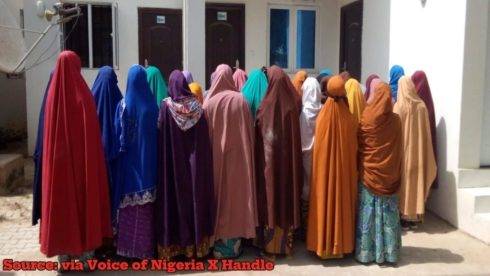NAPTIP recently conducted a successful rescue operation, saving 51 victims of human trafficking. Zonal Commander Mr. Abdullahi Babale confirmed the rescue, highlighting the agency’s commitment to combating human trafficking in the region. This operation underscores the ongoing efforts to address the scourge of human trafficking, which continues to affect vulnerable populations globally.
The victims, comprising 49 females and two males, were intercepted by the Kano State Hisbah Board at Hotoro motor park. Their intended destination was Cote d’Ivoire, where they were supposed to undergo visa processing before being trafficked to Saudi Arabia for labor exploitation. This revelation sheds light on the complex networks involved in trafficking operations and emphasizes the need for collaborative efforts to disrupt such criminal activities.
NAPTIP Trafficking Routes and Modus Operandi
The rescue operation revealed insights into the trafficking routes and modus operandi employed by traffickers. The victims, originating from Kano, Katsina, Yobe, Jigawa states, and Niger Republic, represent a diverse range of backgrounds affected by the menace of human trafficking. Traffickers often exploit vulnerabilities such as poverty, lack of education, and socio-economic disparities to lure victims into their schemes.
The route planned for these victims, from West Africa to the Middle East, highlights the transnational nature of human trafficking and the need for international cooperation to combat it effectively. By intercepting victims before they reach their final destinations, law enforcement agencies like NAPTIP and the Hisbah Board play a crucial role in disrupting trafficking networks and preventing further exploitation.
NAPTIP Arrests and Ongoing Investigations
Following the rescue operation, authorities have arrested two suspects believed to be involved in the trafficking ring. This development signals progress in the investigation and prosecution of individuals complicit in human trafficking offenses. Law enforcement agencies are actively pursuing leads and gathering evidence to dismantle the criminal networks responsible for perpetrating such heinous crimes.
The arrests also serve as a deterrent to other would-be traffickers, sending a clear message that trafficking in persons will not be tolerated, and perpetrators will face the full force of the law. As investigations continue, authorities are focused on uncovering the full extent of the trafficking operation and ensuring that all those involved are brought to justice.
NAPTIP Support and Rehabilitation for Victims
Recognizing the trauma experienced by trafficking victims, the rescued individuals will undergo comprehensive counseling and rehabilitation programs. These initiatives aim to address the physical, psychological, and emotional needs of the victims, empowering them to rebuild their lives and reintegrate into society. Support services provided by NAPTIP and partner organizations play a vital role in helping survivors recover from their ordeal.
The process of rehabilitation also involves efforts to reunite victims with their families and communities. By providing a supportive environment and access to essential services, authorities seek to mitigate the long-term impact of trafficking on survivors and facilitate their transition to a life free from exploitation. Victim-centered approaches prioritize the well-being and agency of survivors, ensuring that they receive the care and support they need to thrive.
NAPTIP: Community Engagement and Awareness
In addition to rescue and rehabilitation efforts, NAPTIP and its partners are actively engaged in community outreach and awareness campaigns to prevent human trafficking. These initiatives aim to educate communities about the dangers of trafficking, raise awareness of the signs and indicators, and promote collaboration in combating this crime. By empowering individuals with knowledge and resources, communities can become vigilant against trafficking and protect vulnerable members.
Community involvement is essential in identifying and reporting suspicious activities, facilitating early intervention, and disrupting trafficking networks. Through workshops, seminars, and advocacy programs, stakeholders work together to create a protective environment for at-risk populations and promote a culture of zero tolerance towards human trafficking. By fostering a united front against trafficking, communities can contribute to the broader efforts to eradicate this modern-day slavery.
NAPTIP Collaborative Efforts and Multisectoral Approach
The successful rescue operation in Kano underscores the importance of collaborative efforts and a multisectoral approach to combating human trafficking. NAPTIP, the Hisbah Board, law enforcement agencies, civil society organizations, and international partners all play integral roles in addressing different aspects of the trafficking problem. By coordinating resources, sharing expertise, and leveraging diverse perspectives, stakeholders can maximize their impact and effectiveness in the fight against trafficking.
Collaboration also extends to advocacy for policy reforms, capacity building for law enforcement and judicial officials, and international cooperation in prosecuting transnational trafficking cases. Through joint efforts, stakeholders strive to strengthen legal frameworks, enhance border security measures, and improve victim support services. By working together across sectors and borders, they aim to create a more hostile environment for traffickers and a safer world for all.
Table of Contents
Discover more from OGM News NG
Subscribe to get the latest posts sent to your email.














